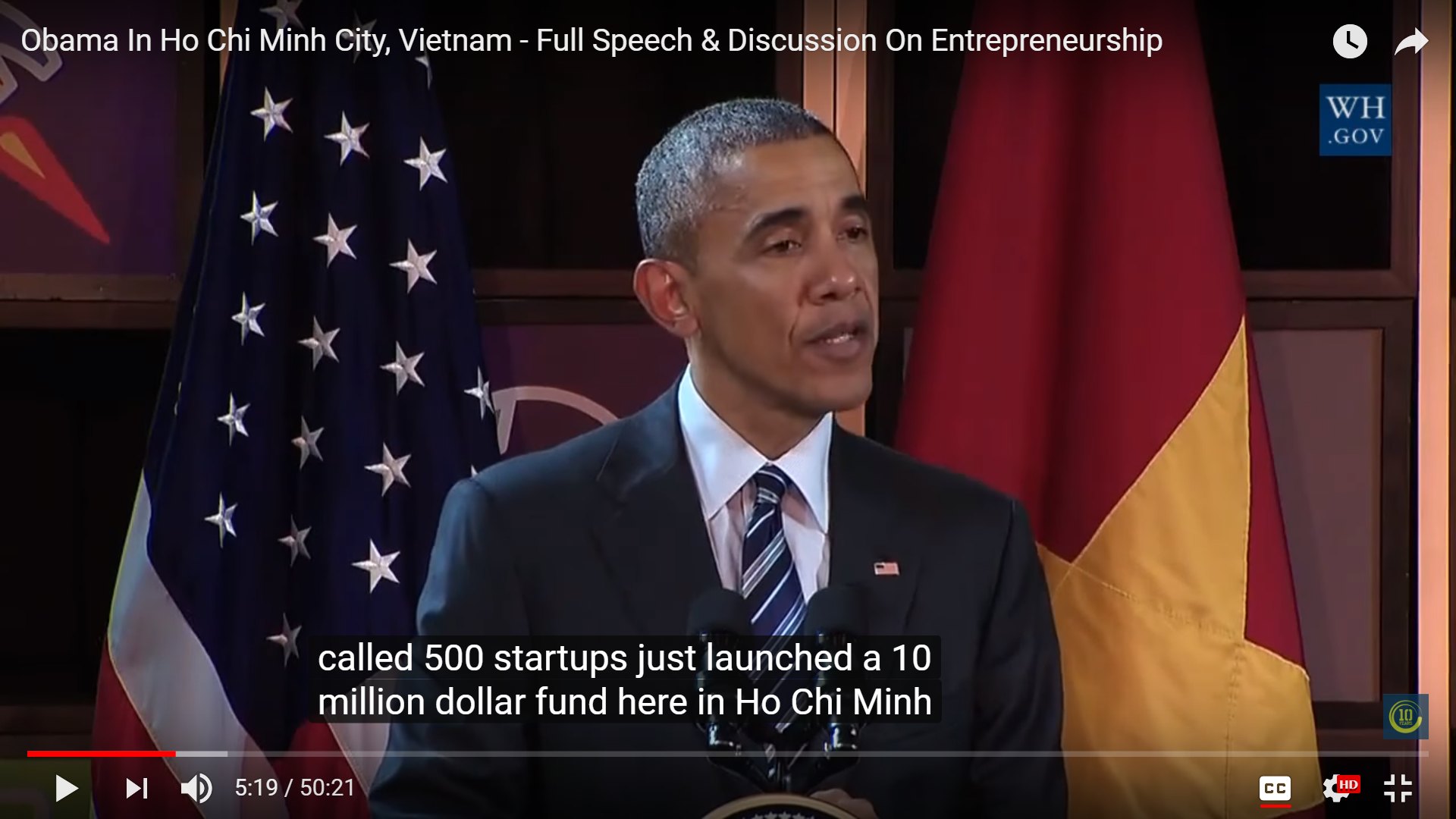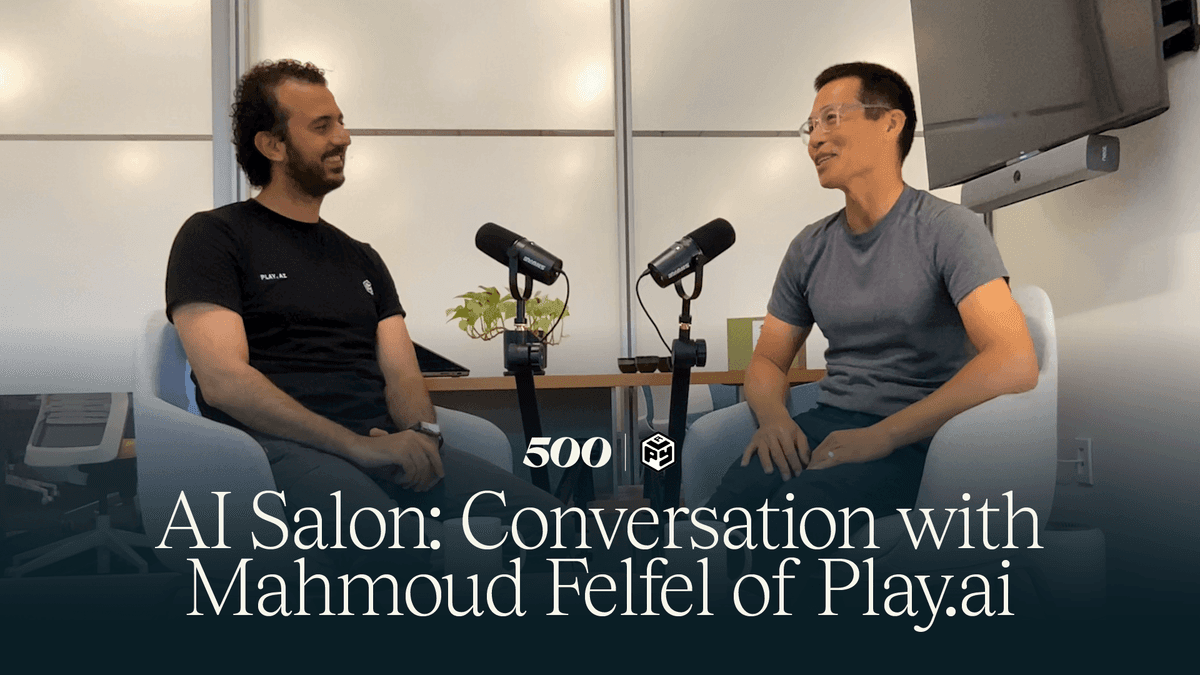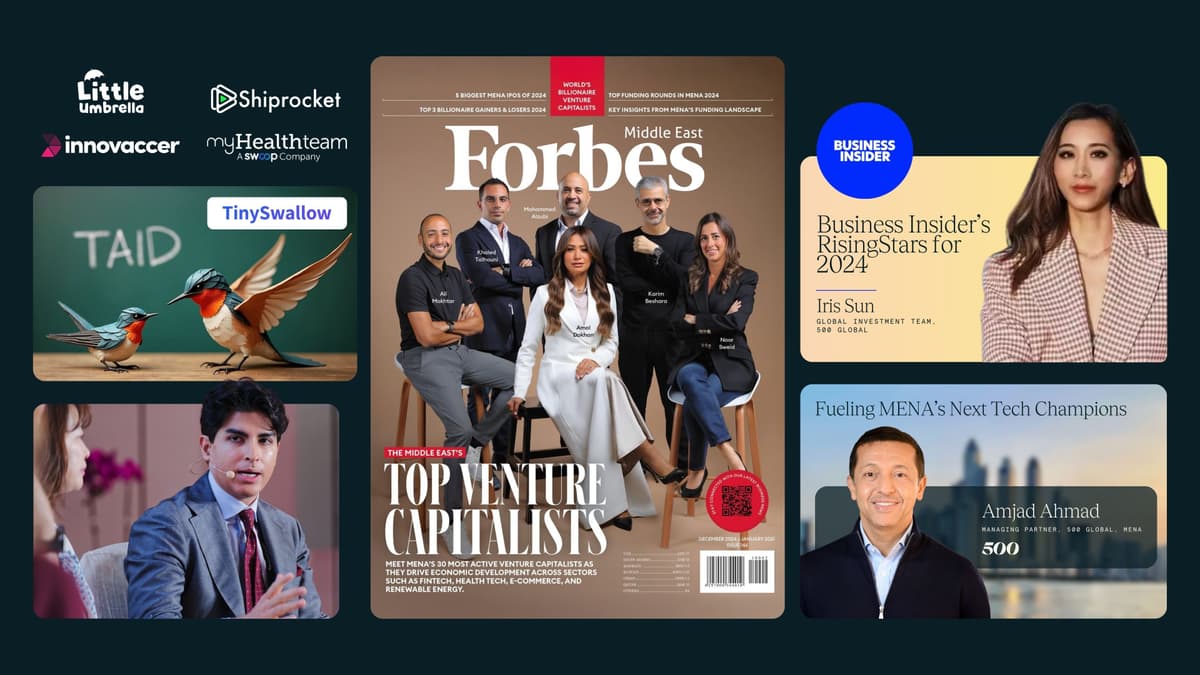2019.10.03

Guest Author

I believe founders have superpowers.
Before I started Back Office, I had built about 10 startups and sold three of them, growing teams that started in my living room to offices of 50 to 75 employees really rapidly.
The idea for Back Office came from a pain point I encountered with each startup: the one thing I hated with each company — and put off doing — was the books. I figured it was worth finding out if other small businesses felt the same way.
I started Back Office with some of my own money and then worked as Back Office’s first sales rep. Once I had some validation, I got some friends, family, and angels involved, and we raised about $145,000.
I signed the first 50 accounts within about six months, and then I brought on my co-founder, Edwin Mejia, who was also able to use that same founder superpower to sign on the next 150 customers much quicker than I was able to do in the first six months of inception.
We were already seeing success, but one of the best decisions we made to accelerate that success was applying for 500 Startups last summer. We were accepted into Batch 24 in late September, and my co-founders, Edwin and Glennys Rodriguez, and I actually moved out to San Francisco for six months while we went through the program.
It was just a great experience overall. Here’s more detail on how it helped us grow Back Office.
Identifying the ‘metric that matters’
As part of Batch 24, we received an investment of $150,000 from 500 Startups. But believe it or not, we didn’t really deploy much of that capital. We had about three or four months to deploy it, and most of the expenses that we incurred were actually from living in San Francisco. So we really figured out organic ways of growing.
The 500 Startups program was centered around the question: “What is the one metric that matters?”
For us, that was month-over-month growth — growing our MRR. We listened to our mentors and they said:
Hey, forget about fundraising. You’ll do that the last month of the program, before Demo Day. For now, we’ve really got to figure what your target customer is. How do you get that customer, and how do you get lots of customers to pay you in exchange for what you provide? What’s the value that you provide, to the point where customers are willing to part with their hard-earned money?
We figured out how to get customers to come to us through partnerships and channels, along with a little outbound sales. Our fundraising story came together with our rapid growth. When we got into 500 Startups, we had about 50 customers. By the time the program was over around four months later, we had well over 200 customers.
Nailing down marketing and growth
500 Startups starts with this thing called Marketing Hell Week. Believe it or not — you’re sitting down for 70 to 80 hours absorbing information. At the end of each day, my butt was really hurting from sitting down and listening to all these different mentors and experts on growth hacking.
Whether it’s Facebook marketing, or sending out cold emails, whatever the deployment channel is, 500 Startups had an expert come in that had been able to do that at scale. I think that’s an invaluable resource for startups. We certainly couldn’t get these people on our payroll, and unless you have a very current network, it’s very hard to get folks that are experts in doing this to come in, hear about your startup, and help you build it.
As part of the program at 500 Startups, when we first started, we got a list of 100 channels. We couldn’t try all 100 channels; we didn’t have time. But the first three channels that we tried all worked — and then we were inundated with requests from customers. We used direct partnerships, like talking to other accounting firms; LinkedIn worked really well; and getting introductions from other founders worked really well.
The approach we took was making sure that anytime we got in front of a small- to medium-sized business (SMB), whether through a cold email or an introduction, we were connecting with them on the business problem and letting them know:
Hey, look, I’m a founder just like you. I’ve experienced this problem. Here’s the way we’ve tackled it. As it relates to accounting and bookkeeping, we’re going through a very grueling process right now. We’re competing for our investors’ limited amount of time. So our numbers have to be on point. When we communicate with investors, we have to know our numbers — we have to know our attack, we have to know how long it takes to get a customer to close. So being very metric-driven and being able to talk about those metrics — whether it’s for filing your taxes or getting an investment, the books are really essential to doing that.
It’s about captivating those opportunities that you get to make a connection.
Figuring out fundraising
That growth really helped paint the story for us, making fundraising for Back Office a very non-traditional experience.
What our mentors at 500 Startups did, and what the program provided, was an amazing network. Instead of going out and randomly meeting venture capitalists, we had VCs coming into the office to meet us — and that’s a strategic advantage. Instead of cold calling, we were getting introduced, and that’s really helpful.
When it came to fundraising near the end of the program, we started off with a client relationship management system called Foundersuite. It was imperative that we were using that to put together this list and manage it [Writer note: it might seem like we coaxed Felix to say this — we did not! But of course, we’re delighted that he did].
I started off with a list of about 300 investors. I wanted to focus on investors who were active at the time. It was also really important that they invested in our sector — staffing, fintech, and B2B startups. After that, the question was: do they invest in our stage? Do they write checks in our stage? And what amount of traction do they need to see to make an investment?
We then put together a list and divvied it up between New York, which is where I’m from; California, which is where the company had been based; and then the rest of the world. After that, we simply figured out connection points to the firms that we wanted to talk to, either through introductions or sending them something as simple as an invitation to our Demo Day for 500 Startups.
Leveraging Demo Day
While fundraising, we weren’t actually soliciting money. We never asked for money. We just basically put together a really well-crafted email to investors. It talked about what we were doing. We included growth stats, like how we were growing 40 percent month-over-month.
Those things really helped paint a solid picture of where we were at. It also helped that we invited them to Demo Day, where there were only going to be 20 companies presenting.
Demo Day had about 600 or 700 investors from all over, and just being part of that was really, really huge for us. Before Demo Day, we pretty much had our round closed.
Getting on stage with so many people wasn’t easy either. We practiced a lot. We worked on it a lot, but it’s not just practicing — you’re going up there, and in two minutes, giving investors the story of you and your company and why they should really consider it.
When you think about all of that in the context of two minutes, it’s tremendously stressful.
Getting those essential warm introductions
My lead mentor at 500 Startups was the person who actually suggested inviting investors to Demo Day. He followed up on our Demo Day invite to investors and made an introduction in which he talked about his experience was working with us over the prior four months. He talked about us from a personal standpoint, how committed we were, how he saw how we grew the company, how he saw the fact that we took advice.
Those things are really important because when you take someone’s money, you’re taking them on as a partner, and you have to be considerate and understand that they want to be involved — even if it’s not as involved as you are on a day-to-day basis. But they want to give their input, so you have to be open about taking that input and figuring out how you can apply that to what you’re doing, even if it doesn’t work in the end.
Juggling conversations
In the end, I didn’t reach out to all 300 investors on my list. I maybe got to 90.
Most of the responses that I got were very positive when we got a lead investor, and we also had other investors in San Francisco — who had a chance to get to know us within the six months we were there. Beyond that, there wasn’t much room left in the round.
So I found myself having tons of conversations with VCs even though I had no room. That’s one thing I found frustrating about the process: I know that until the money is in the bank, you haven’t closed anything — so I still had to maintain 50 or 60 conversations with various people at different firms, knowing I really wasn’t going to be able to take them on.
One more thing
A final piece of advice for new founders: the metrics you show are really important. You really want to focus on those metrics and you want to remove emotion from it.
You have to make it smartphone-ready. Consider that investors will likely be looking at your pitch on a small screen, scrolling through maybe five lines of text. Don’t put paragraphs together.
If it’s not smartphone-ready, people aren’t going to respond to you.
This interview of Felix Rodriguez was done by Nathan Beckord. Nathan Beckord is the CEO of Foundersuite.com which makes the leading fundraising CRM for startup founders. Foundersuite’s software has helped entrepreneurs raise over $1.5 billion in seed and venture capital. This article is based on an episode of Foundersuite’s How I Raised It podcast, a behind-the-scenes look at how startup founders raise money.
Felix Rodriguez is the founder and CEO of Back Office, a human-assisted AI platform and bookkeeping service for companies and consultants. In an interview with Nathan Beckord on Foundersuite’s “How I Raised It” podcast he shared how 500 Startups was instrumental in the early growth of BackOffice. Below is an excerpt of his interview.
500 STARTUPS PROGRAMS, INVESTOR EDUCATION SERVICES, STRATEGIC PARTNERSHIP CONSULTING SERVICES AND EVENTS ARE OPERATED BY 500 STARTUPS INCUBATOR, L.L.C. (TOGETHER WITH ITS AFFILIATES, “500 STARTUPS”) AND THE FUNDS ADVISED BY 500 STARTUPS MANAGEMENT COMPANY, L.L.C. DO NOT PARTICIPATE IN ANY REVENUE GENERATED BY THESE ACTIVITIES. SUCH PROGRAMS AND SERVICES ARE PROVIDED FOR EDUCATIONAL AND INFORMATIONAL PURPOSES ONLY AND UNDER NO CIRCUMSTANCES SHOULD ANY CONTENT PROVIDED AS PART OF ANY SUCH PROGRAMS, SERVICES OR EVENTS BE CONSTRUED AS INVESTMENT, LEGAL, TAX OR ACCOUNTING ADVICE BY 500 STARTUPS OR ANY OF ITS AFFILIATES.
NATHAN BECKORD AND FELIX RODRIGUEZ ARE GUEST POSTERS AND ANY VIEWS OR OPINIONS REPRESENTED IN THE ABOVE POST ARE PERSONAL AND DO NOT REPRESENT THOSE OF 500 STARTUPS OR ANY OF ITS STAFF OR AFFILIATES UNLESS EXPLICITLY STATED. ALL CONTENT REPRESENTED ABOVE IS PROVIDED FOR INFORMATIONAL PURPOSES ONLY. 500 STARTUPS MAKES NO REPRESENTATIONS AS TO THE ACCURACY OR COMPLETENESS OF ANY INFORMATION CONTAINED IN THE ABOVE POST. UNDER NO CIRCUMSTANCES SHOULD ANY OF THE ABOVE CONTENT BE CONSTRUED AS LEGAL, TAX OR INVESTMENT ADVICE FROM 500 STARTUPS OR ANY OF ITS AFFILIATES.
UNDER NO CIRCUMSTANCES SHOULD ANY INFORMATION OR CONTENT IN THIS POST, BE CONSIDERED AS AN OFFER TO SELL OR SOLICITATION OF INTEREST TO PURCHASE ANY SECURITIES ADVISED BY 500 STARTUPS OR ANY OF ITS AFFILIATES OR REPRESENTATIVES. UNDER NO CIRCUMSTANCES SHOULD ANYTHING HEREIN BE CONSTRUED AS FUND MARKETING MATERIALS BY PROSPECTIVE INVESTORS CONSIDERING AN INVESTMENT INTO ANY 500 STARTUPS INVESTMENT FUND. THIS POST IS NOT INDICATIVE OF THE PERFORMANCE OF EACH INVESTMENT MADE BY ANY 500 STARTUPS FUND.
500 STARTUPS MANAGEMENT COMPANY, L.L.C. IS AN INVESTMENT ADVISOR, REPORTING TO THE SEC UNDER THE INVESTMENT ADVISERS ACT OF 1940, AS AMENDED AS AN EXEMPT REPORTING ADVISER SOLELY PROVIDING INVESTMENT ADVICE TO VENTURE CAPITAL FUNDS. HOWEVER, SUCH CLASSIFICATION AS AN EXEMPT REPORTING ADVISOR DOES NOT IMPLY A PARTICULAR LEVEL OF SKILL OR TRAINING. 500 STARTUPS MANAGEMENT COMPANY, L.L.C. PROVIDES INVESTMENT ADVISORY SERVICES ONLY TO PRIVATELY OFFERED 500 STARTUPS FUNDS AND DOES NOT SOLICIT NOR MAKE THEIR SERVICES AVAILABLE TO THE PUBLIC OR OTHER ADVISORY CLIENTS.








